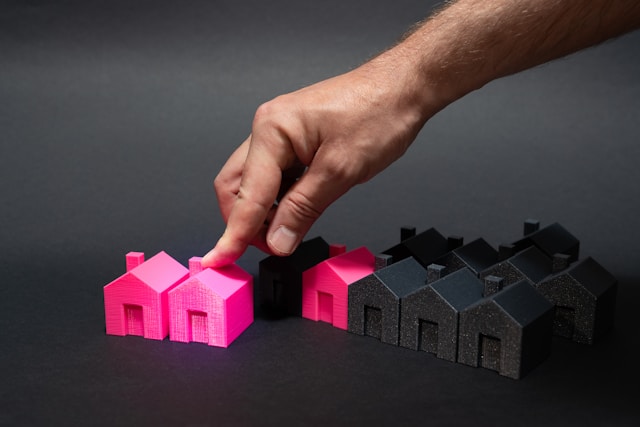Blockchain technology has transformed how we perceive value exchange and asset ownership. From cryptocurrencies to decentralized finance, the power of distributed ledger systems is now disrupting traditional real estate. One of the most promising applications lies in blockchain-enabled property transactions, where tokenization and smart contracts allow investors to generate passive income from tangible assets with greater ease, security, and efficiency.
The Rise of Tokenized Real Estate
Tokenization refers to the process of converting a physical property into digital tokens on a blockchain. Each token represents a fractional share of ownership in the asset, making it possible for multiple investors to hold an interest in the same property. These tokens can be easily transferred or traded on supported platforms, much like stocks or other securities.
This digital representation removes many barriers that have historically made real estate investment cumbersome. Legal paperwork, middlemen, and geographical limitations are significantly reduced. Tokenization enables properties to become part of a more fluid, borderless marketplace, allowing capital to flow more freely. The flexibility and accessibility of this model make it especially appealing to millennials and Gen Z investors who prefer digital-first asset management tools.
Passive Income Through Rental Yields
A major appeal of blockchain property investment is the ability to earn rental income passively. Token holders are entitled to a portion of the income generated by the property—usually through rent—based on the percentage of tokens they own. These earnings can be distributed weekly, monthly, or quarterly, depending on how the smart contract is programmed.
The real power lies in automation. Smart contracts—digital agreements stored on the blockchain—can be coded to handle the entire income distribution process. Once rental income is collected, the contract ensures immediate and fair distribution to token holders. This eliminates costly third-party management services and drastically reduces delays. It also ensures a high degree of trust and transparency, since all transactions are recorded publicly and permanently.
Bridging Traditional Assets and Digital Finance
The integration of property ownership into blockchain networks is part of a larger trend—one that’s seeing traditional finance and decentralized ecosystems merge. Demand is growing for investment opportunities that combine stability with innovation. Tokenized real estate offers just that by turning Real-World Assets into income-generating tools accessible through digital platforms. These blockchain-based assets provide a layer of security that pure digital tokens often lack.
They are backed by tangible assets—houses, apartments, office buildings—that have real market value. Investors benefit from both rental income and potential appreciation of the property itself. This dual benefit positions tokenized real estate as a hedge against the volatility of crypto markets while still maintaining exposure to Web3 infrastructure.
Lower Barriers, Global Participation
Historically, real estate investing has been confined to the elite, with high entry costs, regional restrictions, and complex legalities. Blockchain reverses that dynamic. Now, someone with even modest capital can buy into a premium property, share in the income, and later sell their stake—all from a smartphone.
This model also appeals to international investors. With tokenized assets hosted on decentralized platforms, participation is no longer limited by borders or jurisdiction. Blockchain protocols handle identity verification, payments, and compliance more efficiently than legacy systems. For investors in emerging markets or countries with capital restrictions, this creates powerful new access to global wealth-building opportunities. Research by PwC suggests that tokenization could reduce capital market inefficiencies by up to 35%, further increasing the profitability of micro-investing.
Enhancing Transparency and Security
Traditional real estate transactions are riddled with hidden fees, opaque ownership structures, and bureaucratic slowdowns. Blockchain resolves many of these pain points by offering a decentralized ledger that tracks every transaction from end to end. This ledger is immutable, meaning records cannot be altered after the fact, which virtually eliminates the risk of fraud.
Ownership data, payment history, legal documents, and smart contract terms are all stored securely and transparently. This digital infrastructure not only strengthens investor confidence but also speeds up due diligence for future buyers. For governments and regulatory bodies, blockchain’s built-in auditability reduces compliance burdens while increasing market oversight.
The Future of Real Estate Investing
Tokenized property is not a passing trend—it’s shaping the future of real estate. Platforms like RealT, Lofty, and Brickblock already allow users to browse global listings, invest in tokenized shares, and receive dividends seamlessly. The ecosystem is expanding quickly as traditional financial institutions begin to recognize the long-term viability of blockchain-backed assets.
REITs are exploring tokenized offerings to modernize their operations and expand their investor reach. Governments are also testing blockchain for land registry systems, as seen in Sweden and the UAE. While challenges remain—such as evolving regulations and market standardization—the momentum is undeniable.
Investors who act now can position themselves at the forefront of this shift. Blockchain-enabled property transactions offer a new way to generate passive income from real estate, with lower barriers, reduced friction, and higher transparency. As the ecosystem matures, those early adopters stand to benefit the most from this transformation.




Leave a Reply